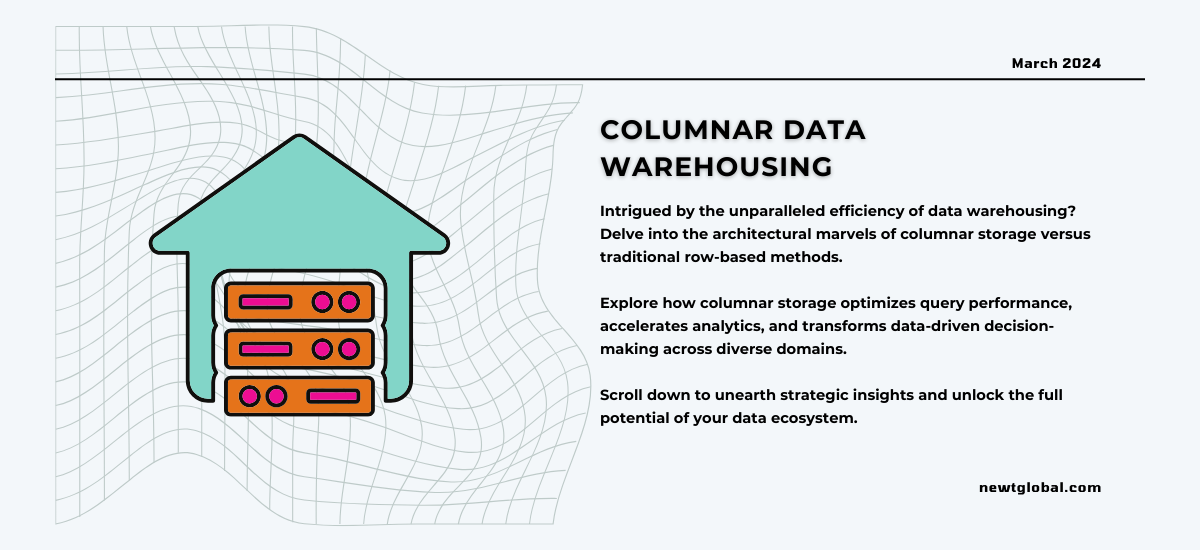
In the world of storing data for analysis, how you set up the storage system is really important for how well your queries work. One popular choice nowadays is using columnar storage, where data is organized by columns instead of rows. But why is this method so favored over the traditional row-based storage? Let’s break down the reasons behind this choice.
Understanding Columnar Storage
First, let’s talk about the two main ways data can be stored:
-
- Row-Based Storage: In row-based storage, data is arranged in rows, where each row holds all the information about one thing or event. This is similar to how traditional databases are set up, focusing on keeping track of transactions and everyday operations.
- Columnar Storage: This method organizes data by columns instead of rows. It’s great for analytical queries where you need to aggregate, filter, or scan specific columns of data.
Why Choose Columnar Storage for Data Warehousing?
-
- Efficient Storage and Compression: Columnar storage is great at compressing data effectively compared to row-based storage. Similar data elements are put together, making it easier to use compression techniques that save space and reduce the workload on your system.
-
- Faster Query Performance: Analytical queries often focus on specific columns of data. Columnar storage lets query engines quickly find and process just the columns they need, making queries faster and reducing the need to read lots of data from storage.
-
- Using Processing Power Efficiently: Columnar storage also works well with vectorized processing, where operations happen on groups of data elements (vectors) rather than individual ones. This lets processors use Single Instruction, Multiple Data (SIMD) instructions, speeding up queries by doing multiple operations at once.
-
- Better Analytics and Aggregation: When dealing with complex queries and aggregating data, columnar storage shines. It groups similar data together, making aggregation tasks faster and more efficient. Instead of scanning the whole dataset, systems can focus on relevant columns, leading to quicker responses and better scalability for large datasets.
Where Columnar Storage Shines
Businesses and industries benefit from columnar storage in various ways:
-
- Business Intelligence (BI): It helps companies make better decisions by quickly processing data and providing valuable insights.
- Financial Services: In sectors like finance, where data accuracy and speed are crucial, columnar storage ensures quick and reliable analytics.
Embracing Columnar Storage:
Columnar storage is changing how we manage and use data, offering efficiency, scalability, and performance advantages. It’s a key tool for businesses looking to gain insights and stay competitive in a data-driven world.
Unlock the Full Potential of Your Data with Columnar Warehousing.
By adopting columnar warehousing, you can enhance your data analytics, improve decision-making, and handle complex datasets with ease. It’s the gateway to efficient data management and strategic advantages in today’s data-centric environment.
To explore the transformative power of columnar data warehousing and unlock unparalleled efficiency in your data management, discover Newt Global’s innovative solutions today at newtglobal.com. For inquiries and consultations, reach out to us at marketing@newtglobalcorp.com. Don’t miss out on the opportunity to leverage the strategic advantages of columnar storage with Newt Global DMAP, a world-class product enabling mass migration of Oracle Db to cloud-native PostgreSQL faster, better, and cheaper.
